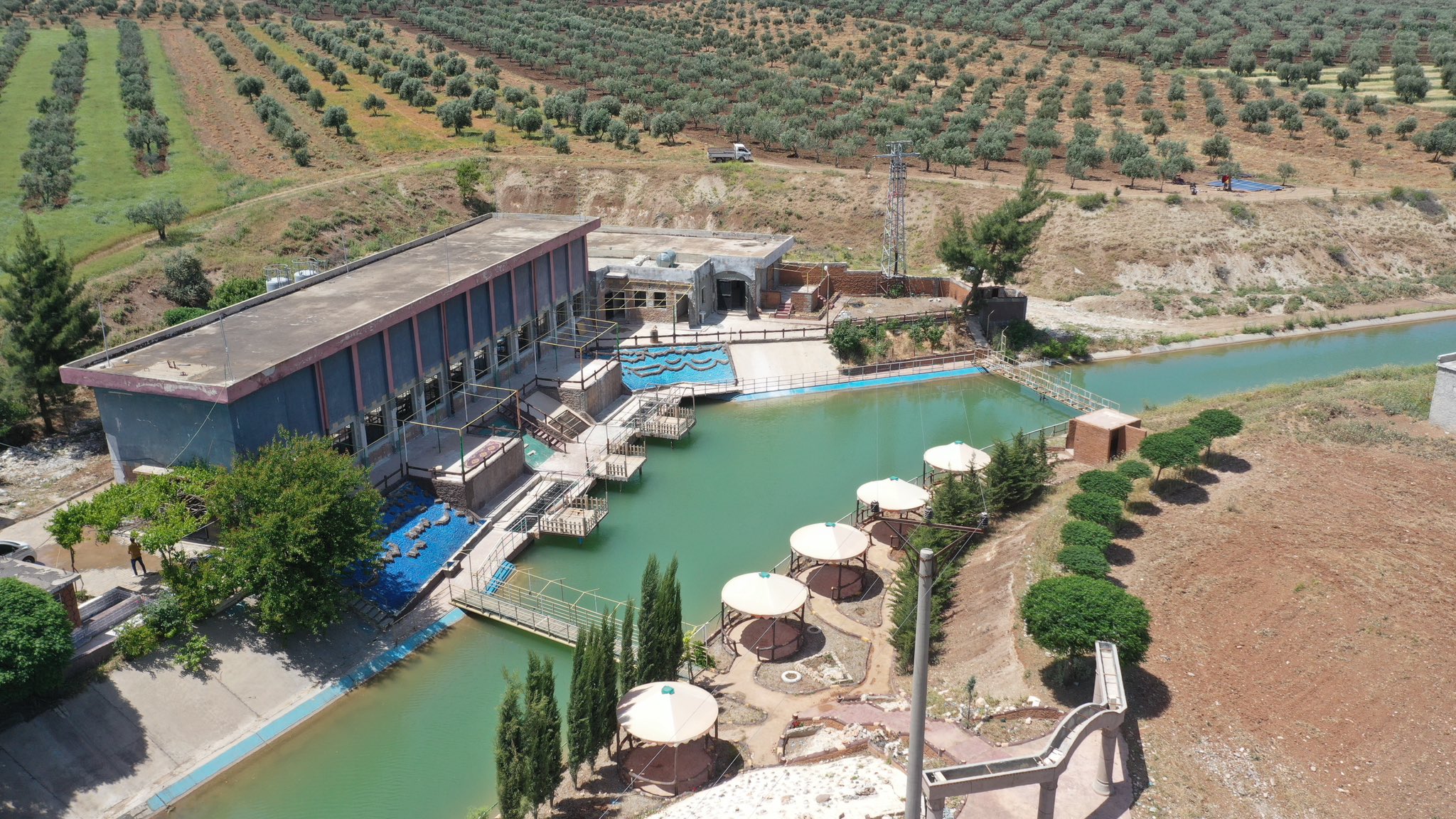Farmers would soon be able to cultivate their crops with the availability of an operating water station throughout the year.
Qatar Charity (QC) partially rehabilitated the Bablit water station in northern Syria on Wednesday which has been out of operation since 2012, providing crucial access to internally displaced Syrians in the area.
Bablit is one of the most important water stations in northern Syria and provides enough water to cultivate 5,000 hectares of land. Work to rehabilitate the facility included cleaning the station’s main and subsidiary irrigation channels, QC said.
Given its heavy dependance on the agricultural sector, which accounts for 90% of northern Syria’s income sources, the area has experienced periods of drought that has largely impacted food security.
However, the QC project has allowed the Bablit water station to operate once again with a pumping capacity of 1.5 cubic meters per second, which is set to increase to 2.5 cubic meters per second upon the completion of rehabilitation work.
The repairs offer a lifeline to farmers who will soon be able to cultivate their crops throughout the year, resulting in an increase of products in local markets.
The Head of the Chamber of Agriculture in the northern countryside of Aleppo, Gazi Ajini, said the “strategic” QC project would also open up employment opportunities for the local workforce.
The Qatari initiative falls under the efforts of the Economic Empowerment and Self-Reliance Support Project in northern Syria, funded by the United Nations Office for the Coordination of Humanitarian Affairs.
Syria has been grappling with a worsening water crisis since 2021, when the Euphrates River’s flow reached record low levels, resulting in its worst drought since 1953. The river is the main source for agriculture and consumption to northern and eastern Syria.
Internally displaced persons (IDP’s) in Syria bear the brunt of such crises as the Bashar Al Assad regime continues to limit access to basic resources and much-needed humanitarian aid.
Notably, IDP’s were the hardest hit by the deadly earthquakes of February, which struck Turkiye as well as neighbouring northern Syria, killing at least 50,000 people in total.
According to the UN, at least 1.7 million Syrian refugees were also among the 15 million affected in Turkiye by the earthquakes. Figures show at least 5.3 million Syrians affected by the years-long conflict had already required shelter even before the earthquakes struck.
The Assad regime has caused the world’s biggest refugee crisis since plunging the country into war in 2011. According to the UN, Syrians make up 6.5 million of 35.3 million refugees worldwide.
Qatar has long called for a political resolution in Syria and has consistently voiced its refusal to normalise with the Assad regime, noting such a move would be a betrayal of the Syrian people.
Last year, Qatar’s Amir Sheikh Tamim bin Hamad Al Thani called for resolving the root cause of the Syrian refugee crisis.
“Why do we accept that a leader massacres his people and expels millions of refugees from his country? As human beings, is this acceptable? What’s more, when we know that these refugees are going to come to us and that this will create problems?” Sheikh Tamim told France’s Le Point last year during his first press appearance since becoming the amir in 2013.







